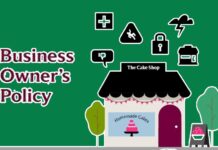Boiler and machinery insurance is a type of insurance that offers coverage for financial loss and physical damage to broken-down equipment. This insurance is also referred to as equipment breakdown insurance. Irrespective of how much your business repairs or replacement costs, it covers damaged equipment and losses gained from malfunctioning equipment.

Boiler and machinery insurance covers a wide variety of equipment aside from furnaces and boilers. This equipment includes office equipment and elevators. It covers every risk connected to business equipment, ensuring they do not affect the business operations. Companies purchase this insurance to protect their equipment just as liability insurance covers workers financially.
What Damages Does Boiler and Machinery Insurance Cover?
As previously stated, this insurance covers a range of business equipment. This insurance is a type of insurance that is specially designed and purchased by companies against equipment they use consistently. There are several types of equipment, boiler, and machinery insurance coverage. It covers several industries, not only manufacturing companies. Boiler and machinery insurance is divided into five main categories. These categories are:
- Mechanical Breakdown: This insurance covers manufacturing equipment like machines, water pumps, engines, copiers, motor burnouts, generators, ovens, cash registers, and other business operations machines. It covers the cost of repairs and replacements of this machinery.
- Electrical Issues: Businesses often face electrical issues while on their business machinery. This insurance covers electrical issues connected to transformers, short circuits, cables, and power surges.
- Boilers and Equipment: It covers any valves, gauges, and boiler equipment.
- Technology: This category is often chosen by technology companies. It covers issues with phones, computers, voicemail, security systems, and fire alarms.
- Air Control: It covers HVAC and air conditioning systems and refrigeration units used by most companies and businesses.
Modern technologies have not been in existence for long enough to determine how equipment can be damaged. However, boiler and machinery insurance is the best insurance; every business in need of more specialized coverage should take it.
What Are the Exclusions?
While this insurance is tailored to protect businesses against financial losses due to unexpected damages to business equipment, there are certain types of losses it doesn’t cover. These losses include:
- Corrosion and Rust.
- Natural disasters like floods and earthquakes.
- Wear and tear.
- Computerized attacks.
- Deliberate acts.
Damages to your business equipment or machinery due to fire, vandalism, theft, lightning, and other covered events are covered by the boiler and machinery commercial property insurance policy.
Benefits
Boiler and machinery insurance coverage expands over offering financial compensation for damaged equipment. This insurance policy ensures the company is financially stable for several costs and losses connected to business equipment damages. Some of the benefits of boiler and machinery insurance include:
- Coverage for replacements and repairs of damaged equipment, including the cost of parts and labor.
- Lost income due to damaged equipment.
- Costs that are sustained due to the time taken for equipment repairs.
- Damaged inventory or replacements of perishable goods damaged due to spoiled equipment.
- Due to these benefits, companies and businesses can thrive and get over repairs and replacements of damaged business equipment.
Who Should Buy Boiler and Machinery Insurance?
This insurance is important for every business that depends on electrical systems, machines, or other equipment to run. It helps businesses recover rapidly and reduce the financial impact of damaged equipment due to unforeseen mechanical breakdowns. The following are companies and businesses that should buy boiler and machinery insurance:
- Hotels and resorts.
- Manufacturing companies.
- Food service businesses.
- Shopping centers and retail stores.
- Construction businesses.
- Health care facilities.
- Educational companies.
- Commercial buildings.
- Agricultural companies.
Businesses like these often face unexpected damages to equipment, causing the company to be on hold and in financial hardship due to repairs. For this reason, it is important to purchase this life insurance policy to protect your business financially.
How Much Does Boiler and Machinery Insurance Cost?
This insurance cost varies depending on insurance companies and several factors used in determining insurance costs. The amount of risks these factors pose determines how much you will be charged for coverage. These factors include:
- Type of business.
- Equipment safety and maintenance records.
- Previous claim history.
- Value and age of equipment.
- Coverage limits and deductibles.
Every insurance company uses these factors to determine how much boiler and machinery insurance would cost. In cases where these factors pose many risks, your business may likely face higher premiums and rates. It is important to work on these factors to qualify for lower rates.



